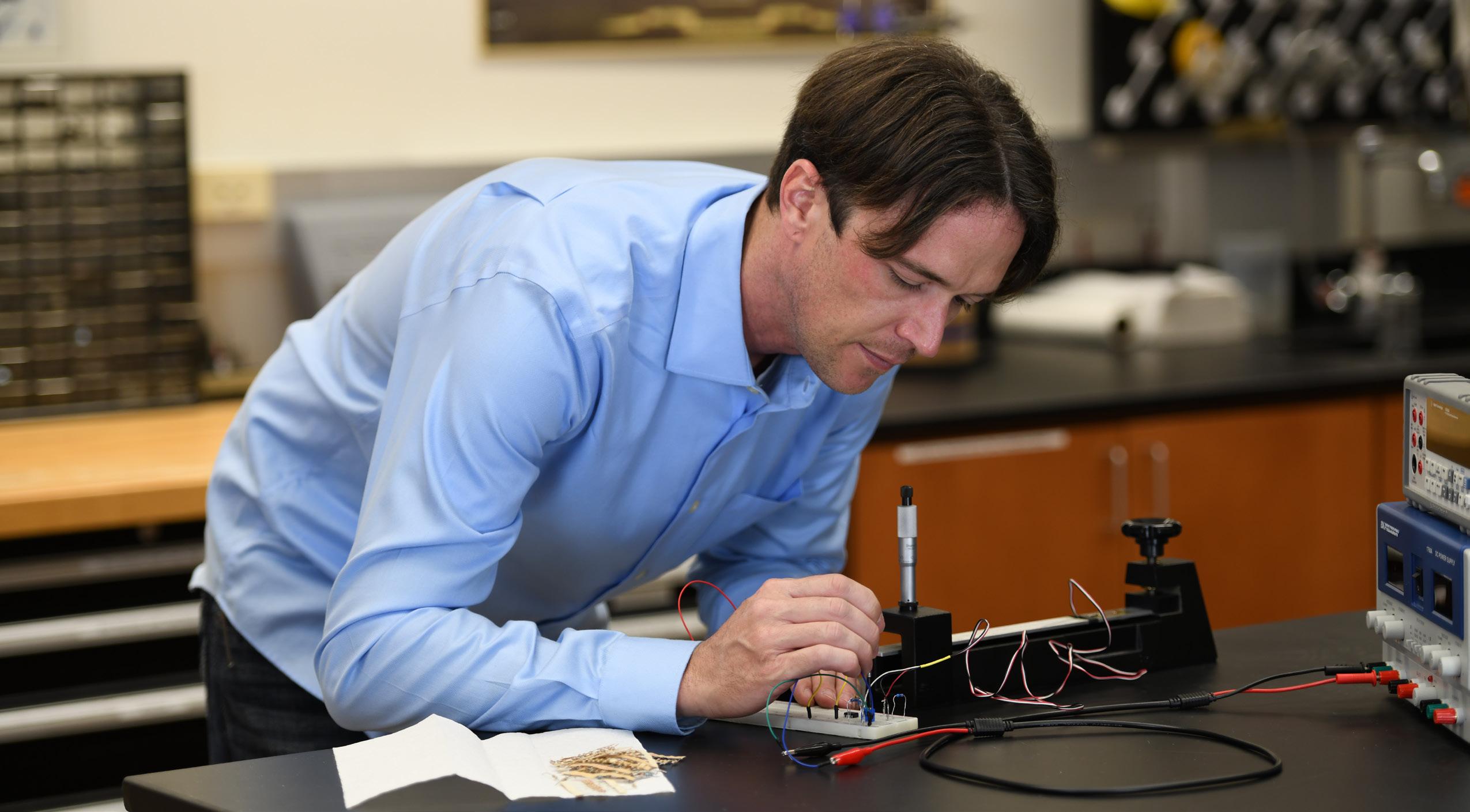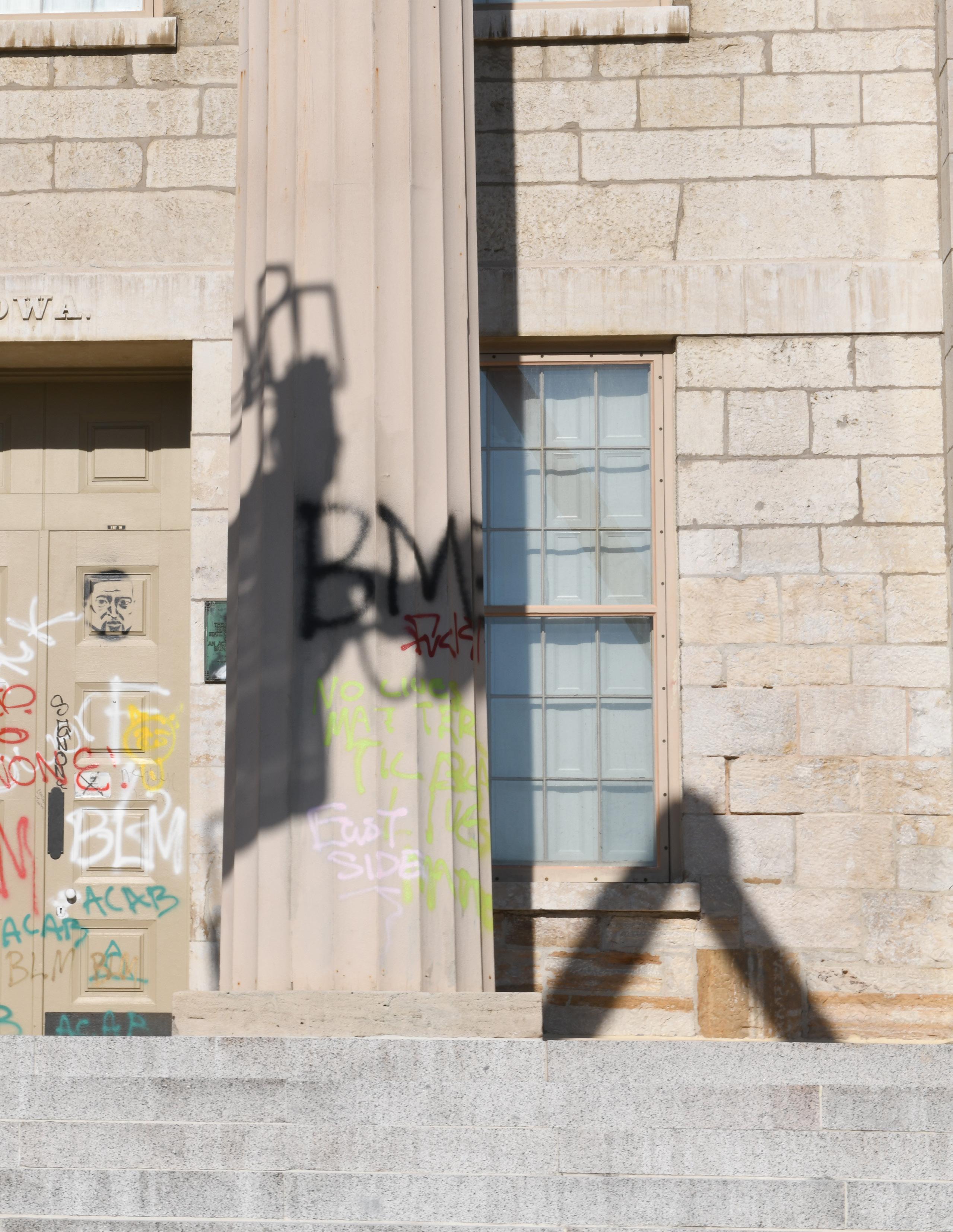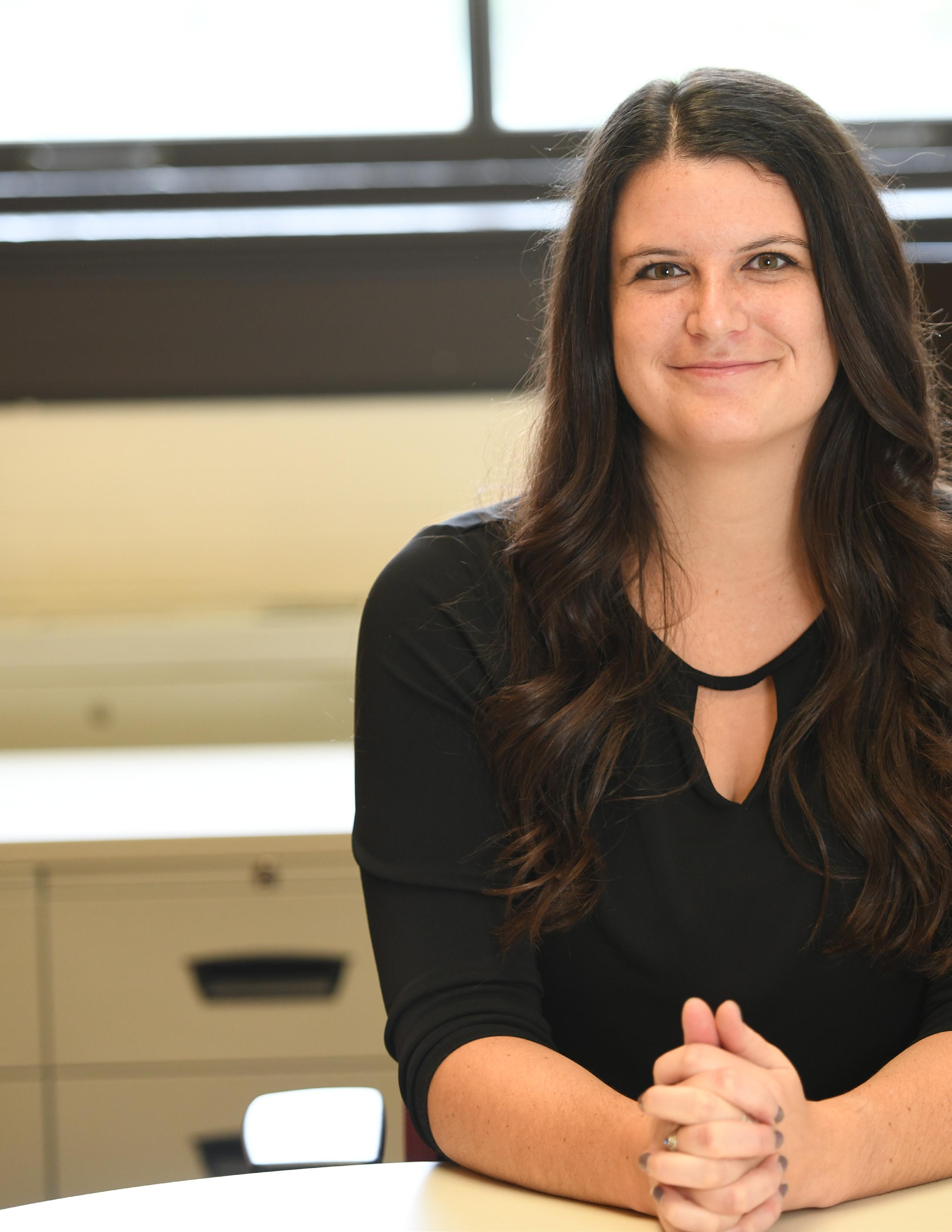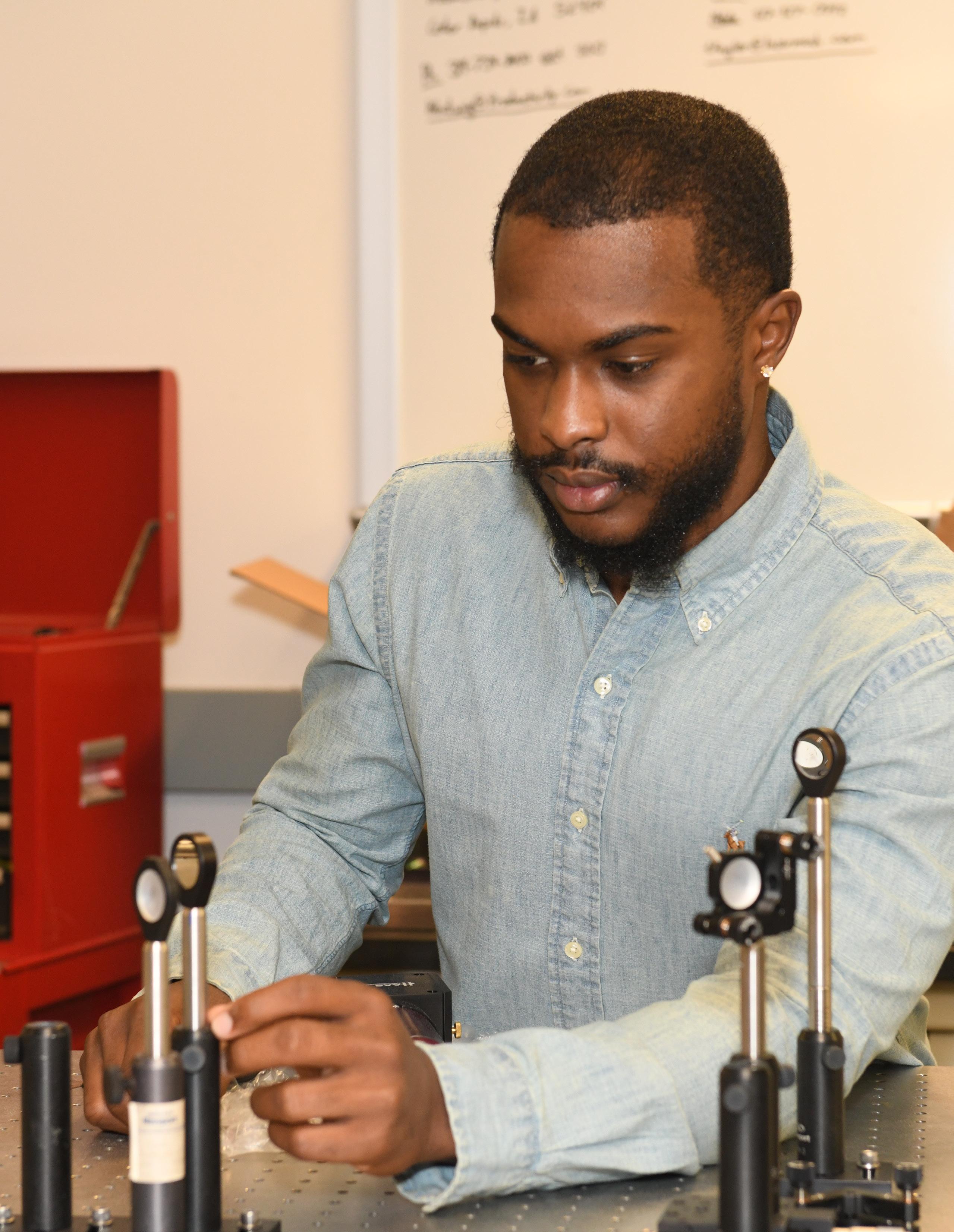
4 minute read
Meet ME Lecturer Austin Krebill
Krebill is not a new face to the Mechanical Engineering (ME) Department since he received his BSE degree from our program earlier in his career. He enjoyed his classes and research so much that he decided to stay in ME and obtained his PhD degree in the summer of 2020. He worked with Professor James Buchholz, ME faculty and IIHR affiliate on his research and dissertation.
The Engineering College and ME faculty performed an external search for the new lecturer position and Krebill was the best fit. He has a lot of experience with being a teaching assistant for a diverse array of courses and he seems to be a natural lecturer. He comes to the department with a lot of experience and we are eager to see the direction he takes his courses.
Advertisement
Krebill’s first semester as a lecturer has been a challenge with COVID-19 where classes are being taught in a hybrid fashion of online and in person. He is blazing the way for designing online labs and lectures for ME:3351 Instrumentation and ME:4080 Experimental Engineering. We wanted to get to know Krebill better, so we asked him a few questions and will share his answers.
15

Q. How did the University of Iowa Engineering set you apart and prepare you for what was next?
Krebill: By allowing access to resources such as state-of-the-art equipment, lab space, and faculty/ researchers.
Q. What is the best piece of advice for students (or someone interested in this field/specific job)?
Krebill: The world is a very competitive, never quit learning and pushing yourself, otherwise your competition will gain the upper hand.
Q. Can you give us a brief job description and why you decided to obtain your Ph.D.?
Krebill: As an undergraduate student, I became a teaching assistant for Design for Manufacturing I discovered my desire to teach by getting great satisfaction from teaching students and watching their skillsets evolve to a level where they could design and construct a remote-control car for the final project.
class to hone my machining skills and to gain work experience. In doing so, I discovered my desire to teach by getting great satisfaction from teaching students
16
and watching their skillsets evolve to a level where they could design and construct a remote-control car for the final project. Next, I developed a passion for being an experimentalist while a graduate teaching assistant for four different classes. In which, lab settings were my favorite, in particular, Experimental Naval Hydrodynamics class, where I developed experiments over the summer and instructed students during lab for the following fall semester. I thought a lot about the experiment through the design phase and was able to keep students engaged by being able to answer any questions they had while also being able to ask the students good experimental design questions. In this setting I was able to gauge my performance from student feedback on how well I utilized my communication skills, machining experience, and engineering skills to develop and teach experiments to students. Answering questions like; did they find the content interesting? Was I clear in explaining the material? Were the fundamental principles understood by everyone? Is the experiment robust and repeatable?
In a short summary, my interest lies with teaching and developing engineering lab-based courses where I can leverage my manufacturing/design skills, research skills to accelerate students in learning.
Q. What courses are you teaching for the fall 2020 semester?
Krebill: I have been revamping ME3351 and ME4080 to provide better continuity between the two classes, while keeping the appropriated overlap.
-ME3351: Engineering Instrumentation: Experiments were redesigned to be conducted off-site by students using a take-home lab kit where they interface the instructor/TA’s virtually during the allocated lab time.
Within the lab kit is an Arduino UNO, microcontroller board used for data acquisition, where each student uses LabVIEW to design/build their own data acquisition system. One example is a temperature measurement system that the students design/ construct. First, they build an electrical amplifying circuit to amplify the temperature dependent thermocouple voltage, then write a program using LabVIEW to acquire voltage. Next, they use ice water “known temperature” to tare the system. Finally, they log temperature measurements and report the associated uncertainty of those measurements.
-ME4080: Experimental Engineering: Experiments were refurbished/updated, new experiments are on the horizon.
Q. Can you tell us what will students be doing/learning in the courses?
Krebill: In ME:4080 students will: -Familiarization and utilization of mechanical measurement instrumentation used in research and industry. -Design, develop, and conduct their own experiment. -Quantifying the uncertainty of the measurements,
“how good is the measurement” In ME:3351 students will: -Construct and use basic measurement circuit elements -Calibrate and estimate measurement uncertainty
Good luck to Krebill in his new position and we wish him much success!

The year 2020 has been one of many changes in life and routine which have deeply impacted the University of Iowa’s campus. There have been many calls for systemic reform and political action. These are the steps of the Old Capitol building, following weeks of Black Lives Matter protests in Iowa City.








